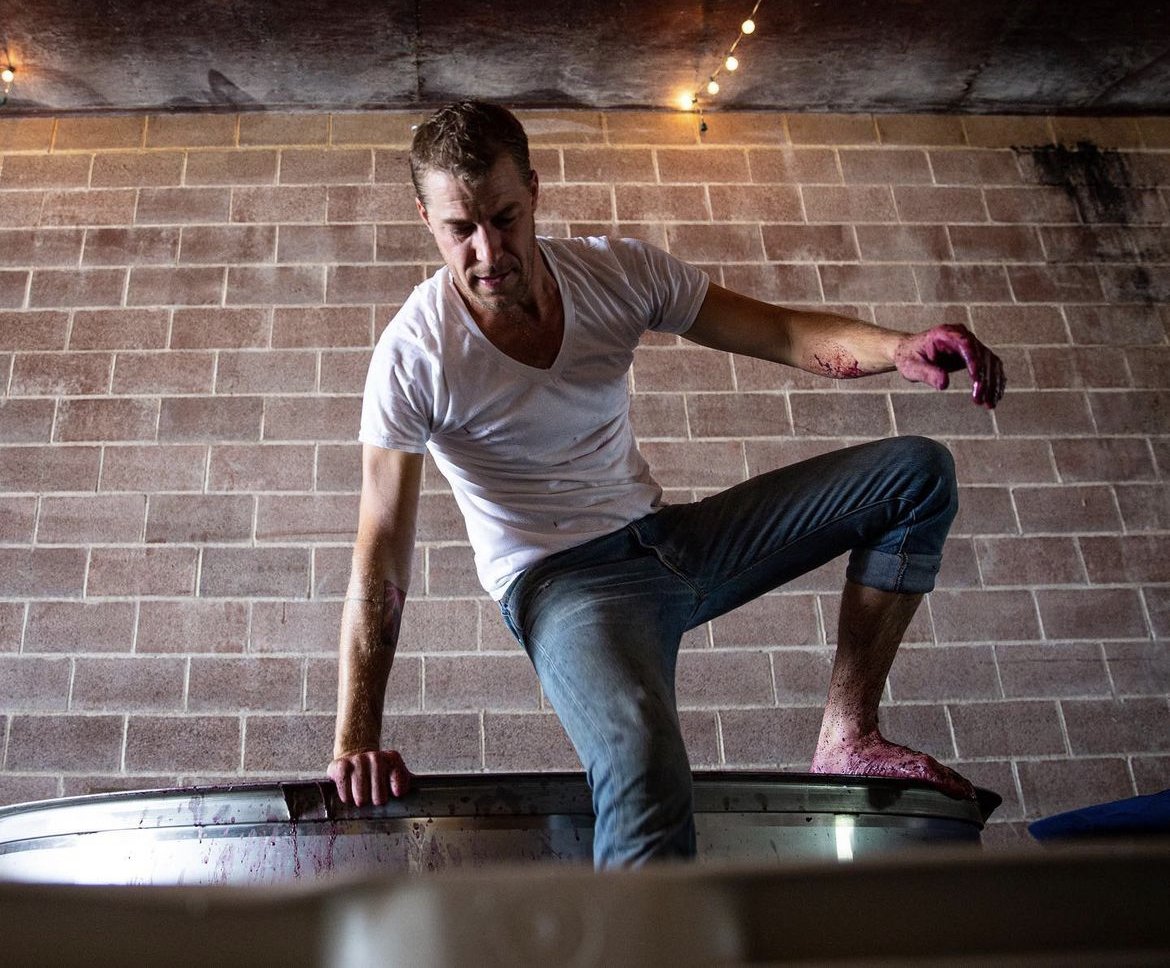Sam Bilbro, Owner/Winemaker
Idlewild Wines is a small winery based in Healdsburg, CA that produces Piedmontese varietals grown in the elevated hills of Yorkville Highlands and Russian River Valley. It is owned and operated by Sam Bilbro, a fourth generation California winemaker. While Idlewild was founded in 2012, the true beginning was Sam’s childhood. His early years were spent walking vineyards and hanging out in a winery converted from an old cattle barn with his late father, Chris Bilbro, founder of Marietta Cellars. Like his Dad, Sam isn’t formally trained; instead, winemaking comes from taste, heart, and intuition. Memories of doing pump-overs while his Dad cooked dinner, of foraging porcini then sitting on a tailgate eating crusty bread and a pile of salami. These are the basis for Idlewild.
Idlewild Wines began in 2012 on a shoestring budget. Sam thought that, at the worst, it would be an expensive hobby while keeping his new day job working for a bio-diverse farm and winery. The aim was never to replicate the wines of the Langhe, an impossible feat as the locations are inherently different. Rather, the goal has always been to make wines of varietal typicity and beauty that respect both their historical origins as well as the soils from which they come. Within two years, Sam quit the day job to focus entirely on Idlewild.
Photo by Bonafide Productions
Trusting in nature and the power of a great site to be wiser than we could ever be is a guiding principle in both the vineyard and winery. The early years of Idlewild had Sam sustainably managing Fox Hill Vineyard in Mendocino. In 2018, Sam grafted over vines on what is now known as Lost Hills Ranch in the elevated hills of Yorkville Highlands, a parcel left to him by his late father. The schist veined sandstone of that vineyard is planted to 15 year old Arneis, Cortese, Dolcetto, Barbera and Nebbiolo.
Sam also manages a spectacular property called Rancho Coda vineyard, that sits on a ridge top on Sweetwater Springs Road in the heart of the Russian River Valley. The steep slopes and fractured sandstone and quartz of that vineyard are planted to over 40 different varietals, mostly Italian in origin.
Winemaking always began with a traditional perspective, and that has evolved and been pushed further over the years. While not dogmatic in practice, the wines are made naturally with nothing added other than small rates of sulfur. Neutral large format barrels and the fewest touches possible are key points in the process. In this way, the vineyard, winery, and the brand all reflect Sam’s philosophy: to respect the power of nature, to make wine in its most natural and pure state, and to avoid the glitz and glamour that is so often associated with this industry.
For the Trade:



